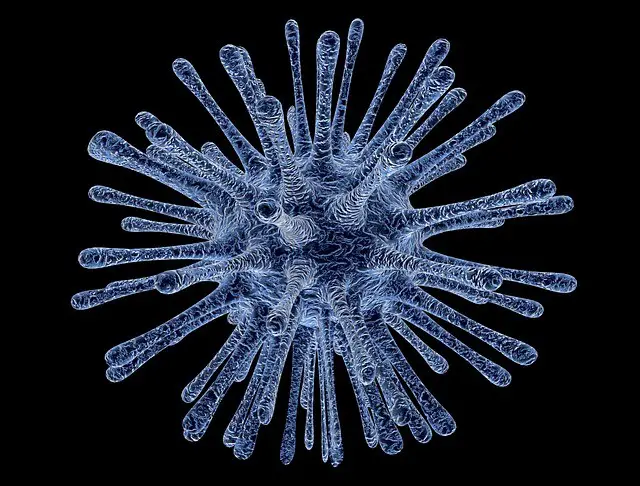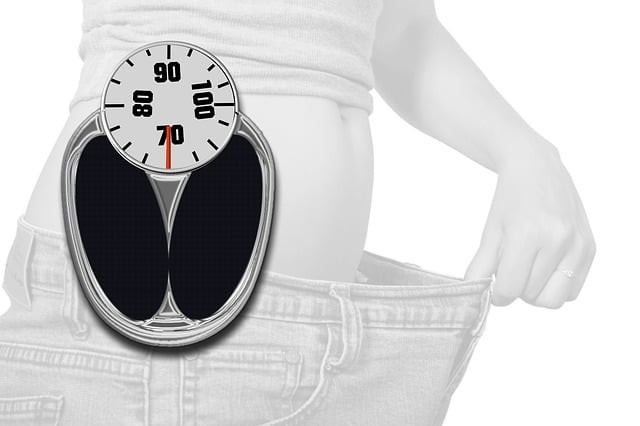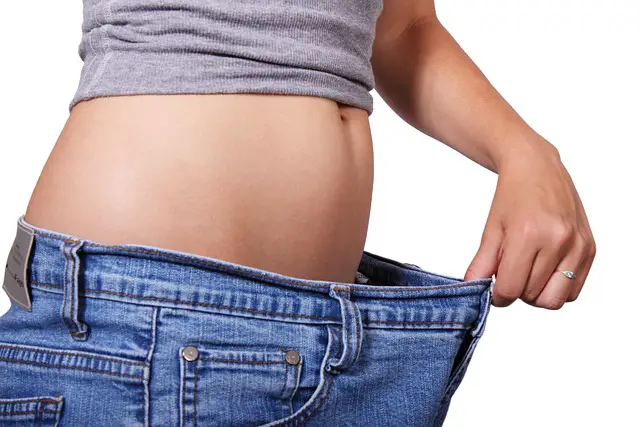When people hear the term bacteria, the first reaction is to panic. But there are bacteria that have health benefits including promotion of digestive health, treatment of irritable bowel syndrome, and weight loss. You need to keep in mind that not all bacteria strains are bad.
Most of the keto articles, always state that keto foods are prebiotics for probiotics for weight loss. The question you ask yourself after this statement is, what are probiotics, and how acidophilus probiotic weight loss is achieved. Worry not! This piece will look into what probiotics are, how you can increase good bacteria, the mechanism of probiotics on body weight regulation and probiotics for weight loss.
What Is a Probiotic Strain?

Probiotics or good bacteria are living organisms that have positive health benefits to the body when consumed or applied. They promote digestive health, assist with weight management, reduce inflammation and obesity and enhance a healthy immune system.
When discussing good bacteria, it is important to mention these terms related to gut microbiota:
- Prebiotics: These are components in your foods that probiotic strains feed on, promoting growth and activity of gut bacteria. Increased food intake of prebiotics promote accumulate of good gut bacteria that promote gut health.
Probiotic foods include fermented foods like yogurt, Kefir, sauerkraut, Kimchi, kombucha, pickles, traditional buttermilk, and some cheeses like mozzarella, cheddar, and cottage cheese. These should be part of your healthy diet.
A probiotic supplement can also be a way to get the beneficial bacteria into your system, in addition to dietary intake.
- Postbiotics: These are simple metabolites or biogenics produced by gut microbiota that are responsible for the benefits healthy bacteria boast of.
Now that we know what probiotic strains are and that you can increase their concentration in the body through food intake and consuming probiotic supplements, let’s look at how acidophilus probiotic weight loss is achieved in the body.
Can Probiotic Acidophilus Help with Weight Loss?
Yes, probiotics can help with weight loss and here’s how:
How Acidophilus Probiotic Weight Loss is Achieved
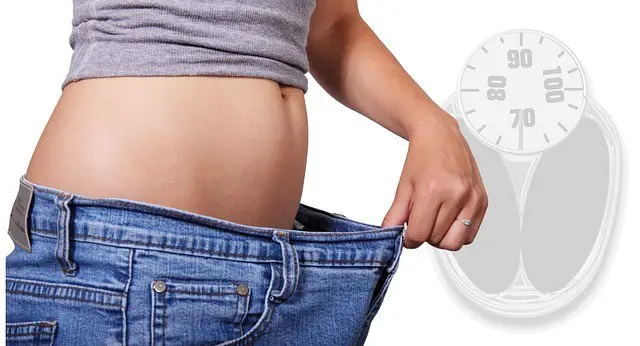
Your gut already contains millions of probiotics that help with breakdown of food and production of essential nutrients like vitamin B and K. Consider them your unseen buddies that help you lose weight and promote gut health.
Consumption of fermented foods and probiotic supplements provide your little friends with food and an extra hand in their activities which can be beneficial for your overall health. Now, let’s see the mechanism of action of probiotics for weight loss.
Weight Management
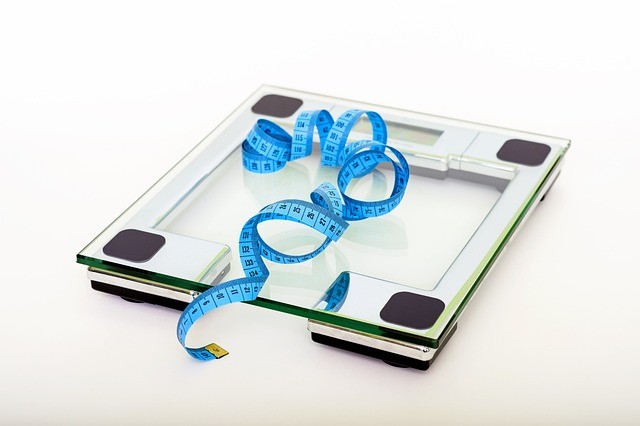
Taking probiotics has been associated with body weight regulation. A study done to evaluate the efficacy of taking probiotics on weight management in overweight and obese adults showed a reduction in weight and body mass index, visceral fat mass, waist circumference and hip circumference and changes in fatty acid and biomarkers.
A meta-analysis on randomized controlled clinical trials to investigate the efficacy of probiotics on gastrointestinal diseases like inflammatory bowel disease showed that probiotics helped to reduce body weight and reducing risk of gastrointestinal diseases.
Another randomized controlled trial investigating the effects of consumption of synbiotic supplement (probiotic supplement with prebiotics) on weight management, body composition and probiotic strains in obesity showed that consumption of a probiotic supplement alone are not the most effective to treat obesity induced dysbiosis. Synbiotic supplements contain prebiotics that enhance the growth and richness of probiotic strains.
A similar study done to test the effects of probiotic strains and synbiotics on weight loss resulted in significant weight loss. Probiotic strains from Lactobacillus and Bifidobacterium were the most effective in reducing body weight.
Overweight and obese adults have lower intestinal microbiota profile and diversity compared to those with a normal body weight. Obese individuals have a decrease in relationship between Bacteroidetes/Firmicutes, with a higher concentration of Firmicutes and lower proportions of Bacteroidetes. This translates to increased extraction of energy from food and higher energy storage in adipose tissue increasing fat mass and belly fat.
The said probiotic strain imbalance also leads to inhibited production of fasting induced adipose factor which causes increase in triglyceride storage in your adipose tissues and reduction in release of hormones like glucagon-like peptide 1 (GLP-1) and peptide YY (PYY). All these changes translate to an increase in intake of food that promotes weight gain and fat mass.
Why is all this important, excessive weight gain causes imbalance in probiotic strains which has negative effects on your body weight and body fat mass. Probiotics for weight loss help you lose weight reducing body fat and balancing gut bacteria.
Appetite and Fat Absorption Reduction
More research is needed to understand the relationship between body fat, body weight and probiotic strains. Until then, here’s what we know:
A study investigating the effects of consumption of fermented foods by probiotic strains on food intake showed a decrease in food consumption. Fermented carbs including resistant starches and dietary fibers are fermented in the intestine by a probiotic strain to produce short chain fatty acids (SFAs) like butyrate and acetate. SFAs suppress appetite, an effect regulated by the brain.
A probiotic strain can help in the digestion of non-digestible dietary components in the colon using enzymes produced by good bacteria. Short chain fatty acids are products of this fermentation. SFAs control lipid and glucose metabolism. Acetate, a SFA, is used as a lipogenesis substrate in the liver while propionic SFA is used in glucose metabolism.
SFAs promote fatty acid oxidation in muscles and tissues leading a decrease in body fat percentage, fat mass, body mass index and body weight. They also stimulate adipose cells to secrete leptin hormone that suppresses appetite. Other hormones whose production are enhanced by SFAs are intestinal hormones peptide YY and GLP-1 that also reduce appetite. They also slow down absorption of fat in the intestines, which can increase fat oxidation of body fat mass, subcutaneous fat and visceral fat and decrease fat storage.
Propionate, a SFA, helps to lower plasma cholesterol levels by reducing activity of enzymes involved in synthesis of cholesterol in the liver.
Reduced fat absorption by SFAs produced by fermentation of carbs by probiotic group will reduce weight gain and fat gain.
Lowering Risks of Obesity and Inflammation
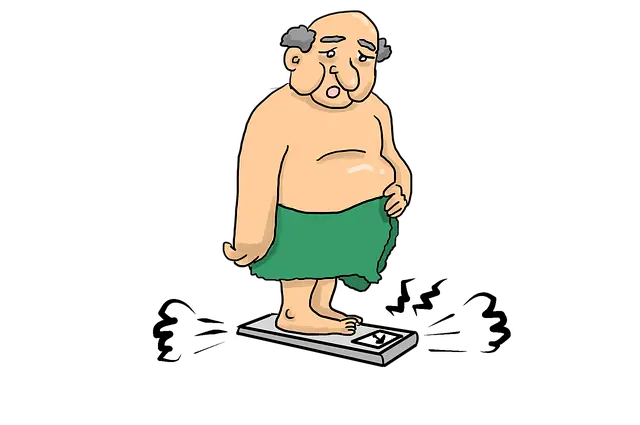
A review of a number of clinical trials was done to assess the information on the role of intestinal probiotic strain on obesity development and effects of probiotic supplement on the health of overweight and obese patients was done.
Gut bacteria strains influence anthropometric measures like waist circumference, body weight, and hip circumference of obese and overweight individuals. Obesity and inflammatory risks are lowered by increasing the levels of fat regulating proteins. Increased levels of proteins lower amount of body fat mass stored.
Obesity increases inflammation increasing risk of developing cardiovascular disease, diabetes mellitus and metabolic syndrome. Improving balance of good bacteria in your gut lining reduces inflammation brought by high body mass and reduces risk of developing obesity.
Another important aspect is gut microbiota influences digestion of food promoting gut health. Probiotics provide health benefits when it comes to protein metabolism for a healthy gut. Good bacteria enhance activity of intestinal microflora increasing concentration of intestinal bacteria related to proteolysis. These bacteria can also assist in absorption of amino acids and small peptides, increasing absorption of proteins by increasing absorption by the epithelium.
These are the ways that probiotics for weight loss help with losing weight and reduces weight gain. Other than weight loss, there are more benefits of probiotics that should motivate you to add them to your healthy diet. They include:
What Are Health Benefits of Acidophilus Prebiotics?
Gut microbiota imbalances are caused by pregnancy, medication, diet and stress. Your gut bacteria get involves in a lot of things in your body and has beneficial effects further than assisting you with your weight loss efforts.
Improve Heart Health and Health of Other Organs
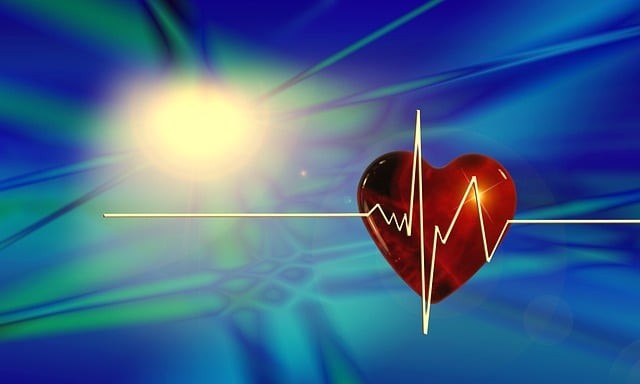
Current studies are looking into the use of microbiota for improving metabolic disorders that increase cardiovascular risk factors like high blood pressure.
A randomized controlled trial to determine the ability of yoghurt and its probiotics to improve blood pressure and lipid profile determined the efficacy of Lactobacillus acidophilus and probiotic Bifidobacterium animalis subsp lactis Bb12 in yogurt and capsules. This study reported that these probiotics Lactobacillus acidophilus and B. animalis subsp. lactis Bb12 did not improve risk factors of cardiovascular disease.
However other clinical studies show that prebiotics, probiotics and postbiotics have beneficial effects in lowering blood pressure.
Probiotics also take care of your skin preventing acne, dermatitis and psoriasis. Skin microbiota homeostasis is important in maintaining cutaneous immune health.
Increase Brain Function

Probiotics get involved in everything not just a healthy gut. A randomized, double-blind, placebo-controlled, and multicenter trial investigating the effects of probiotic supplements on mood and cognitive function in older adults showed that probiotics improved mood, pain. cognitive function and anxiety levels.
There was a decrease in inflammation causing gut bacteria in the probiotic group. Contrary to the placebo group, probiotics increased levels of Blood brain-derived neurotrophic factor (BDNF) whose main role is to support the growth maintenance of neurons.
The mechanism of action of probiotics on cognitive impairment and depressive disorders is associated with the gut-brain axis. Once BDNF levels increase, neuron growth and maintenance is enhanced promoting transmission of messages to the brain reducing depression, anxiety and improving symptoms of mild cognitive impairments.
Reduce Number of Bad Bacteria
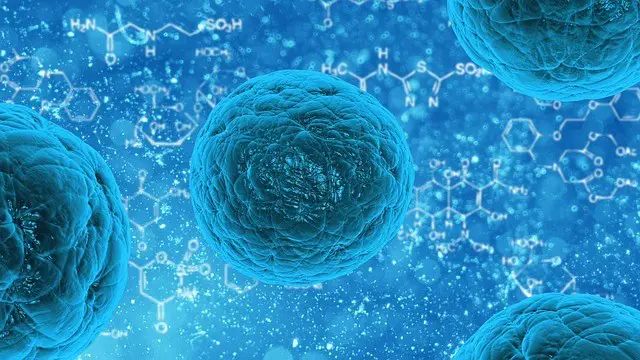
Increasing the number of good microbiota in your body has been shown to drive out pathogen causing illness, reducing risks of infection. A study carried out to investigate the mechanism of action of probiotic Bacillus on Staphylococcus aureus showed that Bacillus bacteria reduces concentration of S.aureus by inhibiting its response mechanism to bacterial population density through gene alteration.
The number of harmful pathogens can be reduced using probiotics through inhibiting the pathogen’s signaling system.
Improves Insulin Resistance

Probiotics can help increase insulin sensitivity in diabetic patients. A study investigating the effects of probiotics and synbiotics on obesity, insulin resistance, non-alcoholic fatty liver disease and type 2 diabetes reported that probiotics reduced fat mass and body mass index.
Improves Immune System
Gut microbiota may exert immunoregulatory function in your body improving your immune system. The mechanism of action is attributed to probiotics ability to enhance non-specific immune response through activation of microphages, antigen-specific cytotoxic T-lymphocytes, natural killer cells and release of cytokines that enhance immune health.
Probiotics from fermented dairy products the immunity of the gut mucosa by increasing the number of cytokine-producing cells and immunoglobin A (IgA) cells.
This and others are the reason you should incorporate probiotics into your weight loss diet.
Do Any Probiotics Help with Weight Loss?
There are good biotics that can take your weight loss efforts to the next level. Lactic acid bacteria seem to be the star of this show. There are some probiotics that can promote weight loss while others promote weight gain. Probiotic’s effects on your body weight depend on strains and species even within the same family.
The strains involved in acidophilus probiotic weight loss are mainly Lactobacillus, Bifidobacterium and VSL#3.
Lactobacillus
The Lactobacillus probiotics are the best in the weight loss game. Studies have shown that supplementation with Lactobacillus strains caused a reduction in fat percentage and body weight.
The types proven to cause weight loss include:
- Lactobacillus gasseri
- Lactobacillus fermentum
- Lactobacillus acidophilus
- Lactobacillus sakei
- Lactobacillus amylovorus
- Lactobacillus plantarum
- Lactobacillus rhamnosus
Lactobacillus gasseri
A study done to examine the effects of probiotic supplementation with strains of Lactobacillus gasseri in obesity showed reduction in abdominal visceral fat and subcutaneous fat by 4.6% and 3.3% respectively. Body weight decreased by 1.4%, BMI by 1.5%, waist circumference by 1.8% and hip circumference by 1.5%. For the placebo group, no significant changes were observed on anthropometric parameters.
Another study on a strain of Lactobacillus gasseri isolated from breast milk to investigate its effect on overweight and obese adults resulted in a significant weight loss after 12 weeks. There were no significant weight changes between the probiotic group and placebo group. The significant changes were observed in the hip and waist circumference, with more pronounced reduction in probiotic group than placebo group.
More research has been done on strains of Lactobacillus gasseri to evaluate its effects on fat hydrolysis. Lactobacillus gasseri suppresses fatty acid release and promotes fecal fat excretion. This is achieved by increasing fat emulsion droplet size, which suppresses lipase-mediated fat hydrolysis.
Lactobacillus sakei
A randomized trial on the effects of Lactobacillus sakei from Kimchi on body fat concluded that Lactobacillus sakei assists people with obesity reduce fat mass. In 12 weeks, fat mass decreased by 0.2 kgs on Lactobacillus sakei, while the placebo group experienced a weight gain of 0.6 kgs over the same period.
Lactobacillus acidophilus
Probiotic supplementation with strains of Lactobacillus acidophilus was shown to promote weight loss, reduce fat gain, BMI and waist circumference.
Lactobacillus fermentum
Consumption of Lactobacillus fermentum and Bifidobacterium animalis subsp as probiotic supplementation was found to be safe and led to regeneration of intestinal epithelium.
Lactobacillus fermentum CQPC07 controls weight gain in mice on a high fat diet leading to significant weight loss.
Lactobacillus plantarum
A randomized controlled trial investigating the effects of a low calorie diet supplemented with cheese rich in Lactobacillus plantarum on blood pressure and weight concluded that probiotic supplementation with L.plantarum lowers arterial pressure and enhances weight loss.
Lactobacillus rhamnosus
A study done to test the efficacy of Lactobacillus rhamnosus on weight loss in obese men and women reported a higher weight loss change in women on probiotic strain than the placebo group. There was similar change in weight in men on probiotics and placebo group.
This probiotic strain has been proven to be more effective for weight loss in women than men on a low calorie diet.
Bifidobacterium
A close second in acidophilus probiotic weight loss is Bifidobacterium strains. They include:
Bifidobacterium bifidum
A study to compare the effects of probiotic mix with those of isolated dietary interventions on abdominal adiposity and antioxidant status reported increased weight loss when Bifidobacterium bifidum was used alone or in a probiotic mix. Probiotic mix supplementation plus dietary intervention led to reduction of waist circumference, waist-height ratio and increased antioxidant enzyme activity.
Bifidobacterium animalis subsp. lactis
Research has been done to investigate the effects of daily consumption of Bifidobacterium animalis subsp. lactis on anthropometric measures in obese individuals. Ingestion of this probiotic strain leads to the reduction in waist circumference, waist circumference/height ratio and decreased body mass index.
VSL#3
If you’re consuming a high calorie diet, the VSL#3 is the probiotic strain for you. VSL#3 supplementation on a high fat diet (ketogenic diet), high calorie diet leads to lower weight gain and fat gain.
Which Probiotics Cause Weight Gain?
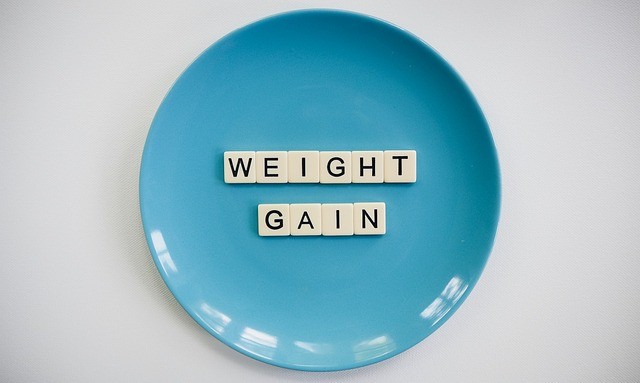
Probiotics within the same family can induce different changes in weight, some causing weight loss while others triggering weight gain. Here are a few probiotic strains when on a weight loss journey.
Some studies show that some probiotic strains of Lactobacillus fermentum and Lactobacillus ingluviei have been shown to promote weight gain.
This study proves that coming from the family doesn’t necessary mean you trigger the same effects on weight. Lactobacillus gasseri BNR17 reduces weight gain while Lactobacillus gasseri L66-5 promoted weight gain. Some strains of Lactobacillus acidophilus have been shown to increase weight.
How to Add More Probiotics to Your Diet
Increasing your number of probiotics can be as easy as eating healthy foods rich in probiotics. Let’s discuss ways you can improve gut bacteria that trigger acidophilus probiotic weight loss.
Reduce Sugar Consumption
Sugar can cause inflammation which reduces gut microbiome. Eating fresh, whole foods and avoiding processed foods with added sugars will ensure balance in microbiota promoting overall health.
Increase Intake of Fermented Foods

High intake of fermented foods like kimchi, sauerkraut, kefir, kombucha and yogurt will provide your good microbiome with prebiotics needed for growth and energy for their activities.
Fill Up on Fiber
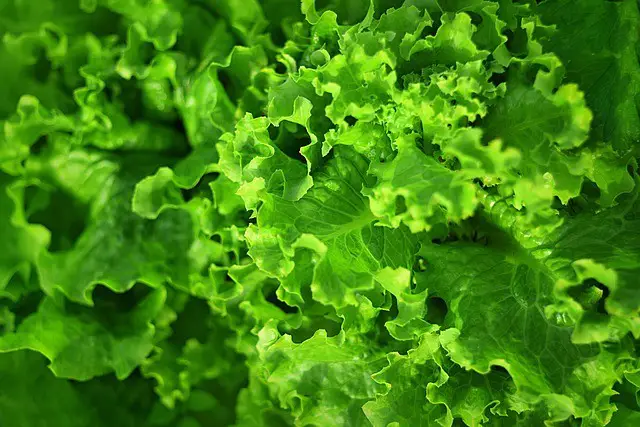
Foods rich in soluble fiber serve as fuel source for probiotics. They feed probiotics increasing their activity and numbers in the gut.
Get Enough Sleep
Sleep and gut microbiota go hand in hand and depend on each other. If you sleep enough your gut microbiome will be balanced. Maintaining a healthy gut microbiota also influences sleep quality. Maintain a good sleep schedule to ensure your good bacteria are functioning well.
Be Mindful of Antibiotics
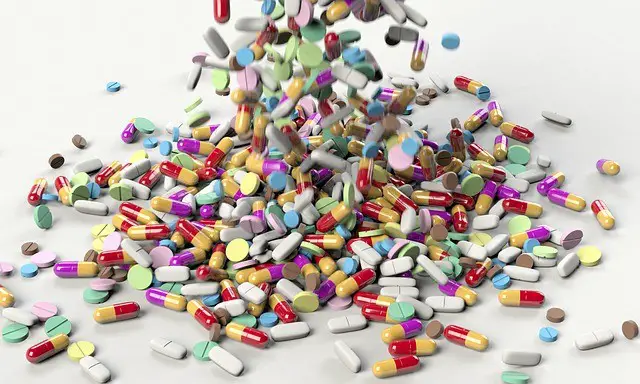
You need antibiotics to kill of pathogens in the body when you are unwell. However, strong antibiotics can kill the good bacteria that you need for your overall health. Avoid self-medicating, only consume prescribed antibiotics and only take these meds when absolutely necessary.
Know Your Food Intolerances
Foods that your gas cannot tolerate should be avoided because they cause gut microbiota dysbiosis. If a food causes stomach pain, bloating or gas, then stay clear of it.
Go Keto

Fermented foods and foods rich in fiber are all allowed in a ketogenic diet. Keto foods are exactly what your good microbiome needs to dance in joy!
Probiotic Supplementation
This is the easiest and fastest way of increasing probiotics in your gut. Speak to your nutritionist to get advised on the right supplements you can take to promote weight loss. A health coach will show you the right places to look to get information on the right brands for probiotics for weight loss.
Here are a few tips to help you choose a high-quality probiotic supplement that will prevent weight gain:
Probiotic Strains
Pick popular probiotic strains like the Lactobacillus and Bifidobacterium that have been proven to cause weight loss. Choose supplements that individuals consuming the said probiotic lost significantly of belly fat and fat mass.
Third Part Certified
Supplements don’t undergo serious testing as other medications so it may not be easy to ascertain the quality of the said supplement. Ensure that product manufacturers addressed safety and efficiency issues by carrying out tests to prove the quality of their products.
CFU Count
This refers to the number of bacteria per dose. Also, it is not as much about quantity rather than quality of the probiotic in your supplement. Only consume supplements from probiotics that have been that have been tested to be effective.
Ingredients
Your supplement should contain high quality probiotics. Avoid probiotic supplements with fillers, added sugars and preservatives that can be harmful to your health.
How Long Should You Take Probiotics for Weight Loss?
Taking probiotic supplements daily for 2 to 3 weeks have been shown to bring significant changes in weight. You can take probiotics for over 12 weeks, combining this with dietary changes that promote weight loss.
You will start seeing results after 1 to 2 weeks of consuming your probiotic supplement, and results can be maintained for over 12 weeks when combined with other weight loss strategies. There’s no definite time prescribed to take probiotics.
What are The Signs that Probiotics Are Working?
Here are a few things to look out for to tell you that your probiotics are working:
- Reduced stomach pain
- Frequent bowel movements
- Better sleep patterns
- Fewer vaginal infections
- Improved symptoms of skin infection and acne
- Better mood, reduced anxiety and improved memory
The moment you start seeing the benefits of consuming probiotics, know they are working!
What Are the Side Effects of Taking Probiotics?
When you start taking probiotics you may experience some abdominal distension like bloating and gas. These should clear within a few days to a week.
Other side effects include:
- Allergic reactions, especially people with gluten or soybean allergies. Choose gluten free probiotics that won’t cause any allergic response when consumed.
- Skin irritation, itchiness or rash. This clears after a week of consuming your probiotics.
- Increased risk of infection in people with compromised immune system. Consuming probiotics when your immunity is compromised predisposes you to fungal or bacterial infections.
- Small intestine bacterial overgrowth (SIBO) refers to a condition where probiotics in the colon start growing in the small intestine. Symptoms of SIBO mimic those of irritable bowel syndrome, including bloating and gas.
SIBO can be corrected when you stop consuming probiotics and consume antibiotics to regulate the number of colon bacteria in your small intestine.
What Happens When You Suddenly Stop Taking Probiotics?
Research has shown that sudden cessation of consumption of probiotics leads to microbiome dysbiosis. This gut environment is suitable for bad bacteria, increasing your susceptibility to disease.
When Should I Stop Taking Probiotics?
In the beginning, when you start taking probiotics you will experience bloating and gas, which are temporary side effects of probiotics. It takes your body a week or two to get used to increased concentration and activity of these microbiota.
If these symptoms persist for more than three to four weeks, stop taking probiotics and seek medical attention.
Bottom Line
There are good and bad bacteria in the body. The good bacteria lead to acidophilus probiotic weight loss. Some probiotic strains can cause weight gain while others cause weight loss. Increase your gut microbiota through dietary intake of fermented foods and probiotic supplementation.
Choose high quality probiotic supplements that are gluten free or lack other allergens, have been approved by third parties and have quality ingredients that promote weight loss. Remember consuming probiotics alone won’t bring about the change in weight you desire. Pair your supplements with good lifestyle changes like con

